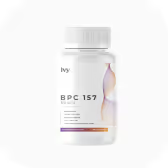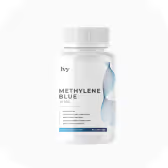
$179
Boost energy, improve focus, and enhance mood with B12, designed to combat fatigue and support your active lifestyle.
Compounded with natural methylcobalamin
Fast online approval, free expedited shipping
Subcutaneous (SubQ) formulation. Smaller needle, less pain
Lab tested for quality to promote patient safety

How to take
Methylcobalamin B12 is given as a subcutaneous injection, meaning it’s injected into the fatty tissue just under the skin—usually in areas like the abdomen, thigh, or upper arm.
Potential side effects
Most people tolerate methylcobalamin B12 well. Mild side effects may include redness, swelling, or pain at the injection site, as well as headache, dizziness, or nausea.
Do I need insurance?
No insurance needed. IVY RX offers clear, upfront pricing and affordable generic options—making it easy and accessible to take care of yourself, no complications or surprises.
How B12 injections work
Increases energy
Enhances mood
Increase metabolism

Why B12 injections?
Join 200,000+ patients feeling their best
Quality tested
Your medication is prepared in a state-licensed pharmacy, independently verified in FDA- and DEA-registered labs, and delivered to your door exactly when you need it.
Potency test
Confirmed every 3–6 months to stay within ± 10 % of the target strength
Sterility test
Screened for bacteria, fungi, and other contaminants to meet USP 797 standards
Endotoxicity test
Checked to USP 85 limits to ensure zero harmful bacterial toxins
pH test
Fine-tuned for a smooth, irritation-free injection
Questions?
We’ve got the answers!
What’s the difference between methylcobalamin and cyanocobalamin?
Both are forms of vitamin B12, but methylcobalamin is the natural, active form your body can use right away, while cyanocobalamin is synthetic and must be converted first. Methylcobalamin is often preferred for energy and nervous system support, while cyanocobalamin is a more common, cost-effective option.
Where on my body should I use the injection?
The B12 injection should be administered subcutaneously (under the skin). Common sites include the abdomen (avoiding the navel area) or the back of the upper arm. Ensure the site is clean and rotate injection sites to prevent irritation.
Can I talk to a doctor?
Absolutely! You can quickly and securely message your care providers through our patient portal. Simply log in, choose your provider, and send them a message. It’s that easy!
Do I need a prescription?
You do not need to have a pre-existing prescription or a referral to use IVY RX. After your online visit, if the medical professionals on our platform determine it is safe and appropriate, they will write a prescription for you.
What comes with my B12 injection order?
Your B12 injection order includes: One 2000mcg/ml in 5ml (10 injections) vial of B12 injectable solution, syringes, and needles for administration.
Methylcobalamin (Vitamin B12) Injection: Important Safety Information
1. Introduction
- What Is Methylcobalamin?
Methylcobalamin is a biologically active form of Vitamin B12. It is often prescribed or administered to individuals with Vitamin B12 deficiency, or for certain neurological and hematological conditions. - Regulatory Status
In some cases, compounded forms of methylcobalamin have not been evaluated or approved by the U.S. Food and Drug Administration (FDA) for all potential uses. If you prefer or require an FDA-approved product, please consult your healthcare provider for alternatives.
2. Potential Benefits & Uses
- Common Indications
- Treating or preventing Vitamin B12 deficiency (e.g., pernicious anemia).
- Providing support for neurological health in certain conditions (e.g., peripheral neuropathy).
- Assisting with red blood cell formation and overall energy metabolism.
- Limitations
While many individuals benefit from methylcobalamin injections, this product is not intended to diagnose, treat, cure, or prevent any disease beyond uses recognized by healthcare professionals. Always consult your provider to determine if this therapy is right for you.
3. Contraindications
You should not receive methylcobalamin injections if:
- You have a known allergy or hypersensitivity to Vitamin B12, cobalt, or any ingredient in the formulation.
- You have Leber’s disease (hereditary optic nerve atrophy), as high-dose B12 supplementation could potentially worsen the condition.
- You are pregnant or breastfeeding without first discussing risks and benefits with your healthcare provider.
4. Warnings & Precautions
- Not FDA-Approved for All Uses
- Certain forms or dosages of methylcobalamin may be compounded and not specifically reviewed by the FDA.
-
- Consult a Healthcare Professional
- Inform your provider about your medical history, including any allergies, kidney or liver disease, or blood disorders.
- Discuss any other medications or supplements you are taking, as these may interact with B12 therapy.
-
- Pre-Existing Conditions
- Use caution if you have a history of hematological disorders, as your provider may require regular lab work (e.g., complete blood counts).
-
- Use in Specific Populations
- Safety in pregnant or nursing women has not been fully established for high-dose methylcobalamin.
- Pediatric use should be supervised by a qualified medical professional.
5. Potential Side Effects
While most people tolerate methylcobalamin injections well, side effects can occur. Contact your healthcare provider if you experience any of the following symptoms, especially if they are severe or persistent:
- Injection Site Reactions
- Redness, swelling, tenderness, or mild pain at the injection site.
- If signs of infection (e.g., warmth, pus, significant redness) develop, seek medical attention.
-
- Allergic Reactions
- Itching, rash, hives, swelling of the face/lips/tongue, or difficulty breathing.
- If you experience these signs, discontinue use and seek emergency medical care.
-
- Gastrointestinal Symptoms
- Nausea, diarrhea, or upset stomach may occur.
- Report severe or persistent gastrointestinal issues to your provider.
-
- Dizziness or Headache
- Some individuals may experience mild dizziness or headaches.
- If severe, stop use and consult a healthcare professional.
-
- Hypokalemia (Low Potassium)
- Very rarely, rapid improvement in anemia can cause shifts in potassium levels.
- Symptoms might include muscle weakness, irregular heartbeat, or confusion. Inform your provider if you experience these.
6. Drug Interactions
- Medication and Supplement Considerations
- Metformin, proton pump inhibitors, and other drugs can affect or be affected by B12 status.
- Always inform your healthcare provider of all medications (prescription and over-the-counter), vitamins, or herbal supplements you are taking.
7. Administration & Dosage
- Administration Method
- Typically administered intramuscularly (IM) or subcutaneously (SQ).
- Should be administered by a qualified healthcare professional or according to instructions provided by your medical team.
-
- Dosage
- Dosage and frequency vary based on individual needs (e.g., underlying deficiency, condition severity).
- Follow your provider’s directions precisely. Do not adjust the dose without medical guidance.
-
- Monitoring
- Periodic blood tests (e.g., serum B12 levels, complete blood counts) may be recommended to ensure the therapy is effective and safe.
8. Storage & Handling
- Temperature
- Store as indicated by your pharmacist or on the product label (often refrigerated or at controlled room temperature).
- Sterility
- Use only sterile, unexpired products.
- Do not reuse needles or syringes; dispose of them in approved sharps containers.
9. Adverse Event Reporting
- Immediate Care
- If you experience severe side effects (e.g., difficulty breathing, significant swelling, severe pain), seek immediate medical attention.
- FDA Reporting
- You or your healthcare provider can report suspected adverse reactions to the FDA’s MedWatch Program at 1-800-FDA-1088 or online at www.fda.gov/medwatch.
10. Disclaimer
- Not Evaluated by the FDA for All Uses
- These statements may not be reviewed by the FDA, and methylcobalamin injections are not FDA-approved to diagnose, treat, cure, or prevent any disease beyond recognized indications.
- Consult a Professional
- This information is for educational purposes only and does not replace medical advice, diagnosis, or treatment from a qualified healthcare provider.
- Individual Variation
- Treatment response and side effects may vary. Always follow the advice of your healthcare professional regarding therapy, dosage, and monitoring.
Questions or Concerns?
If you have any questions regarding methylcobalamin (Vitamin B12) injections, including their potential benefits, side effects, or dosage, please consult a qualified healthcare professional.

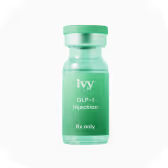


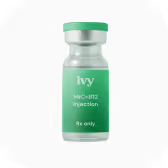




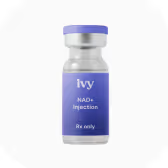
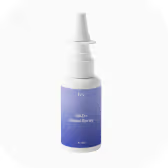


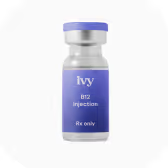
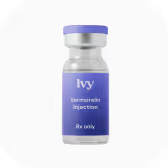
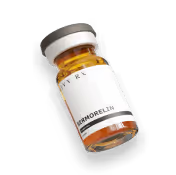
.avif)

